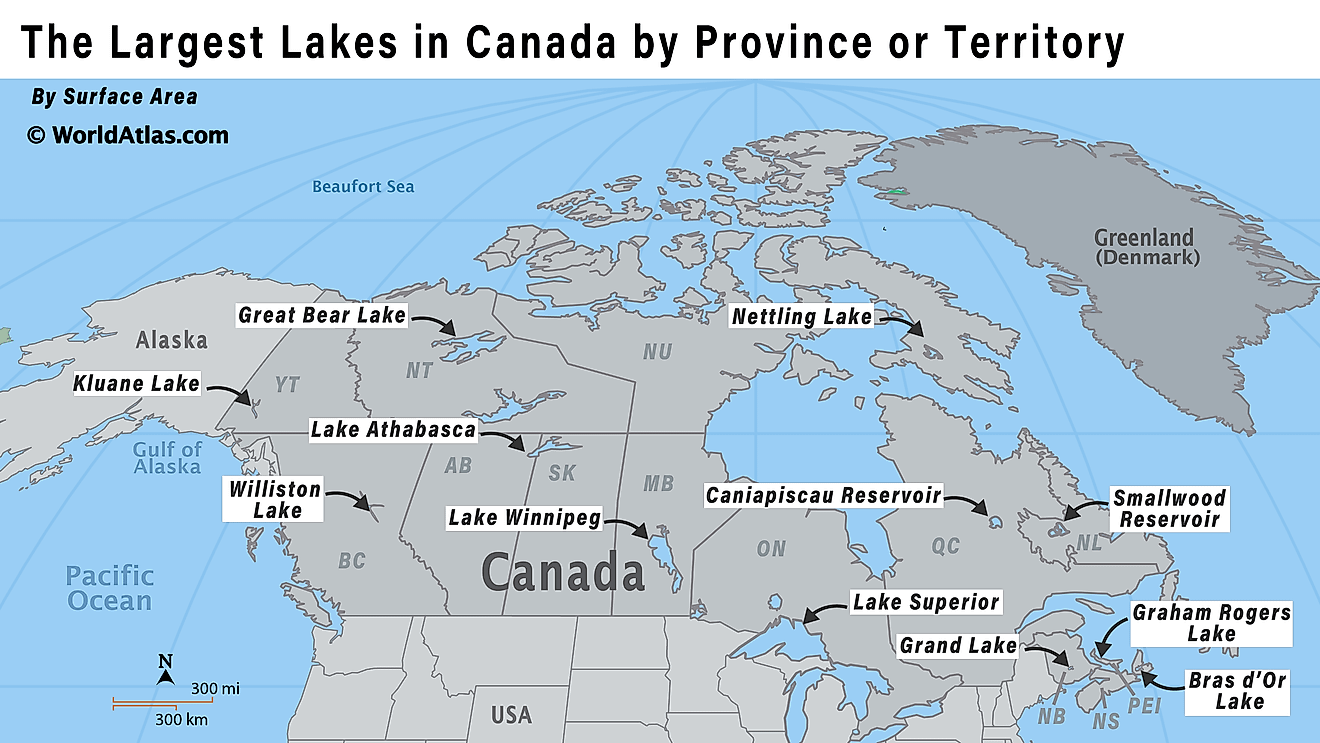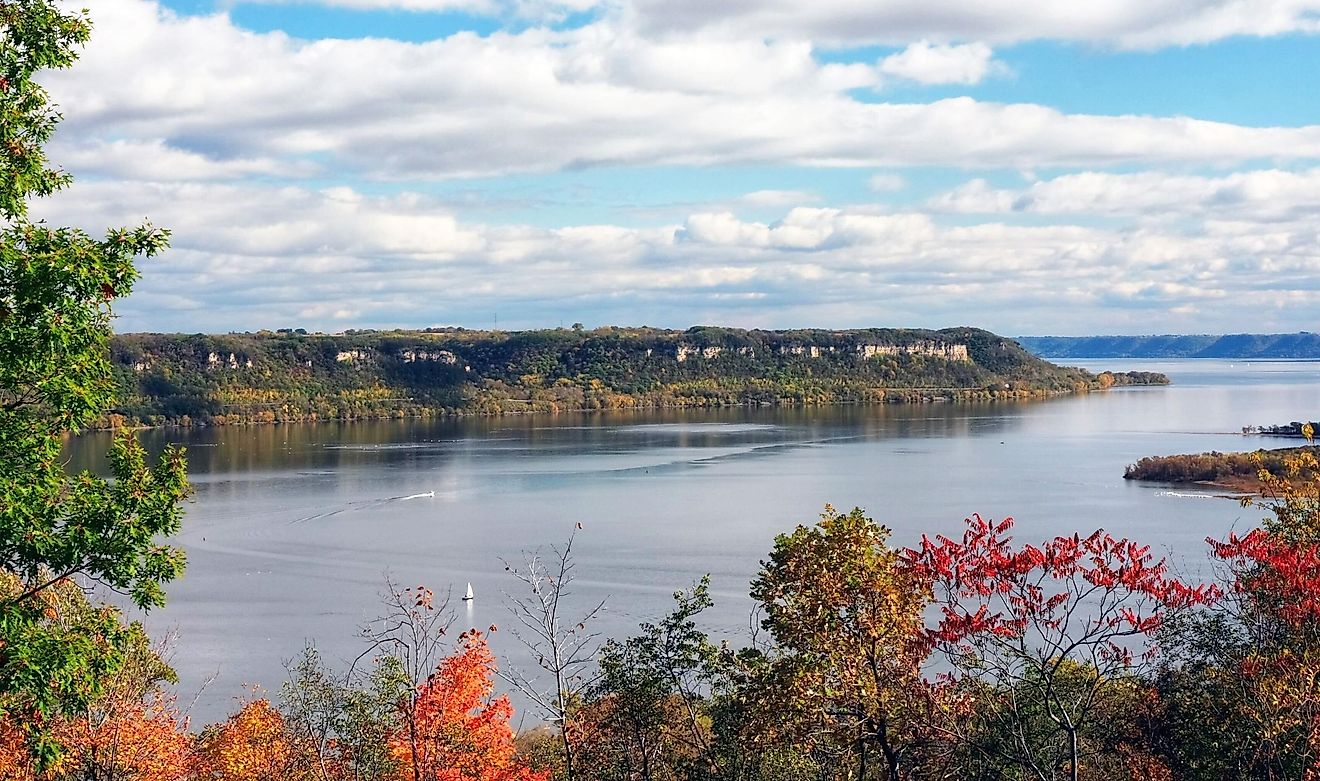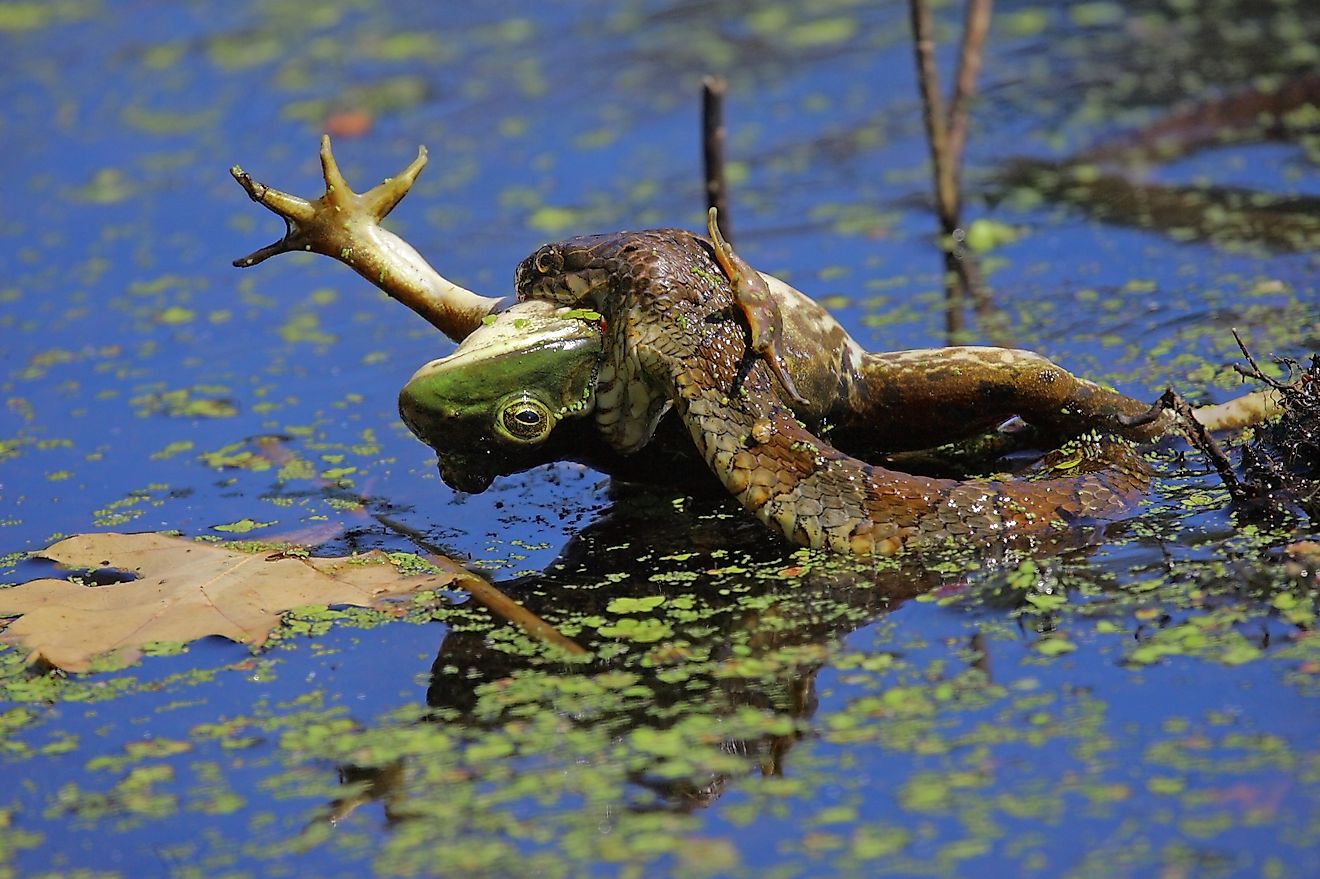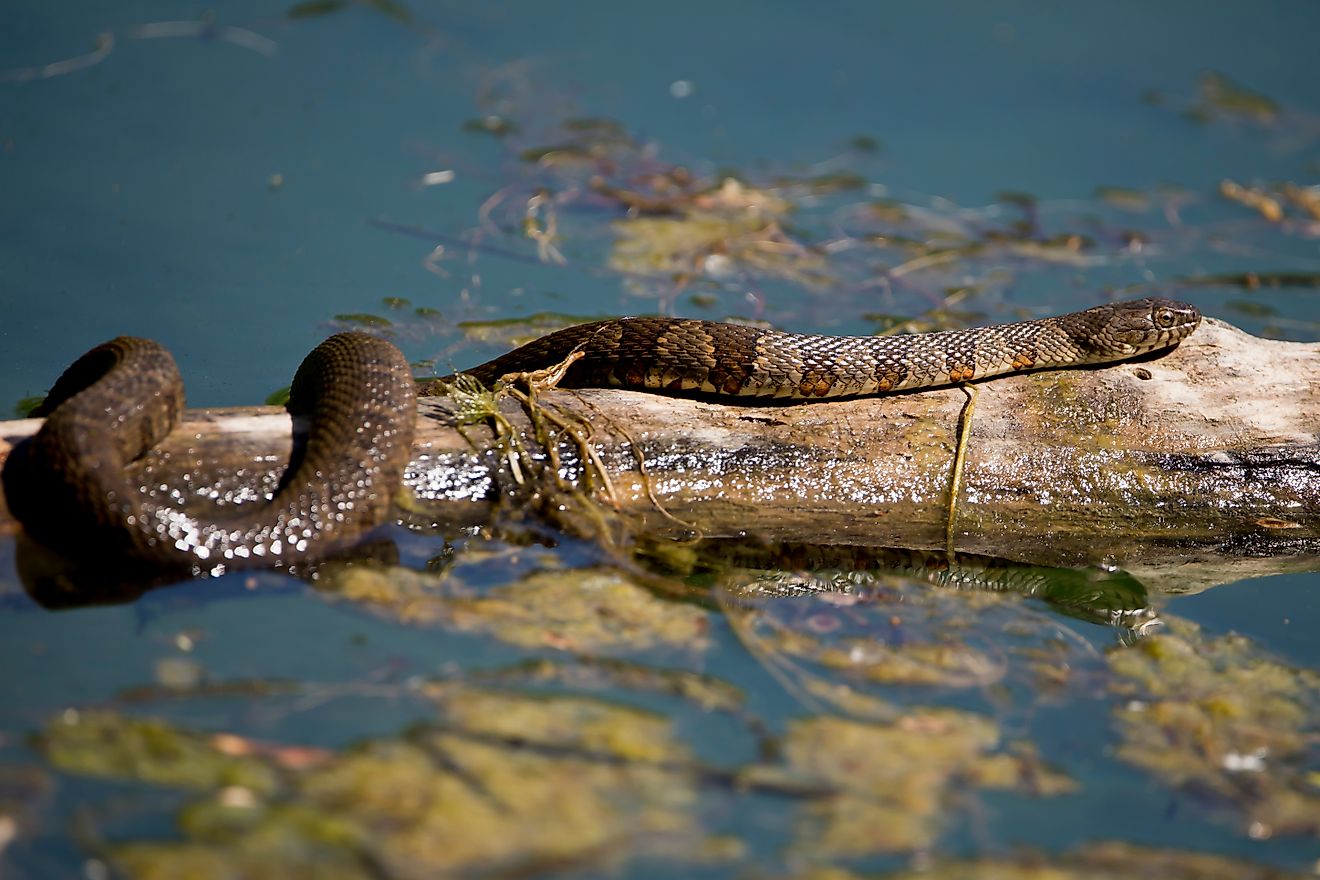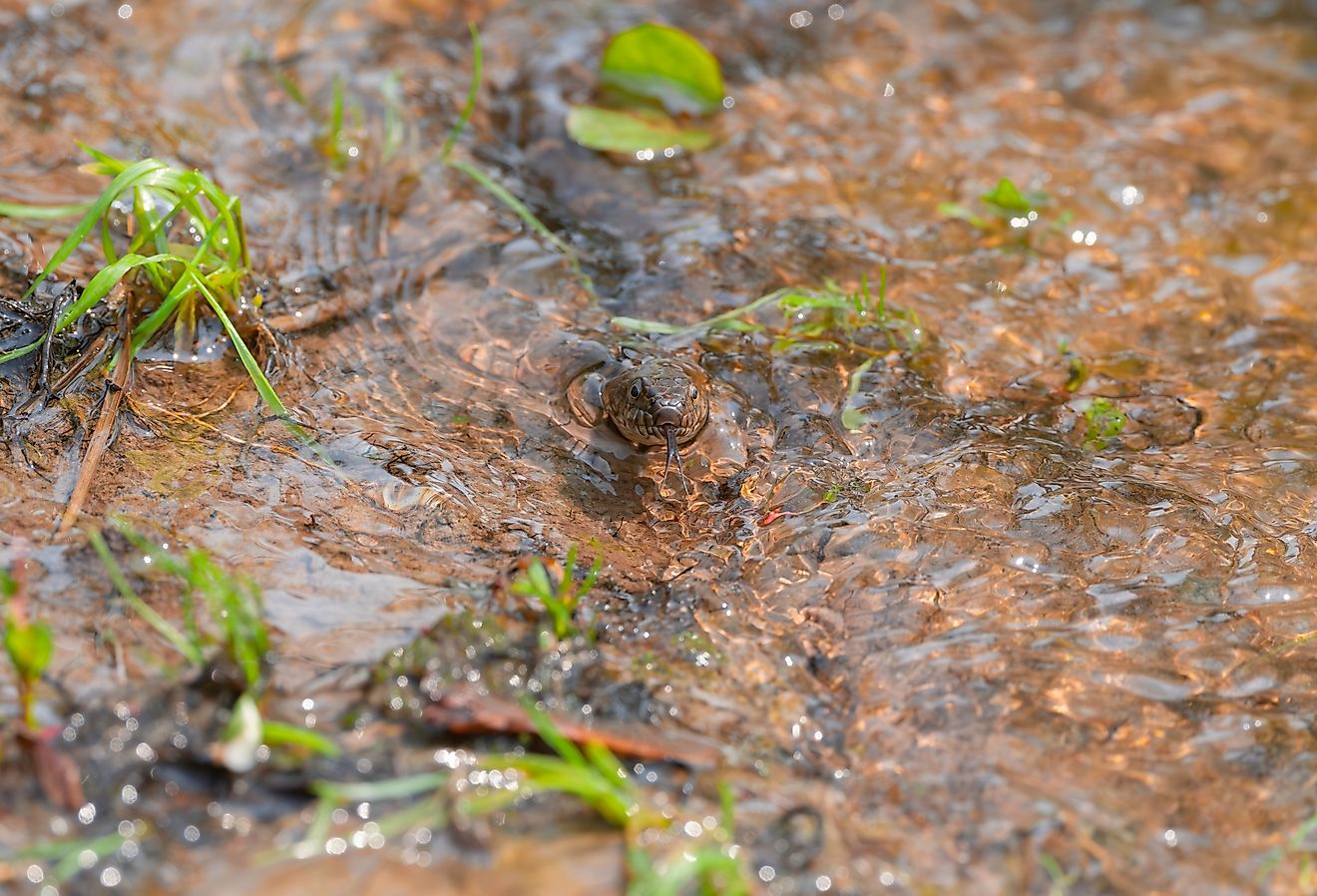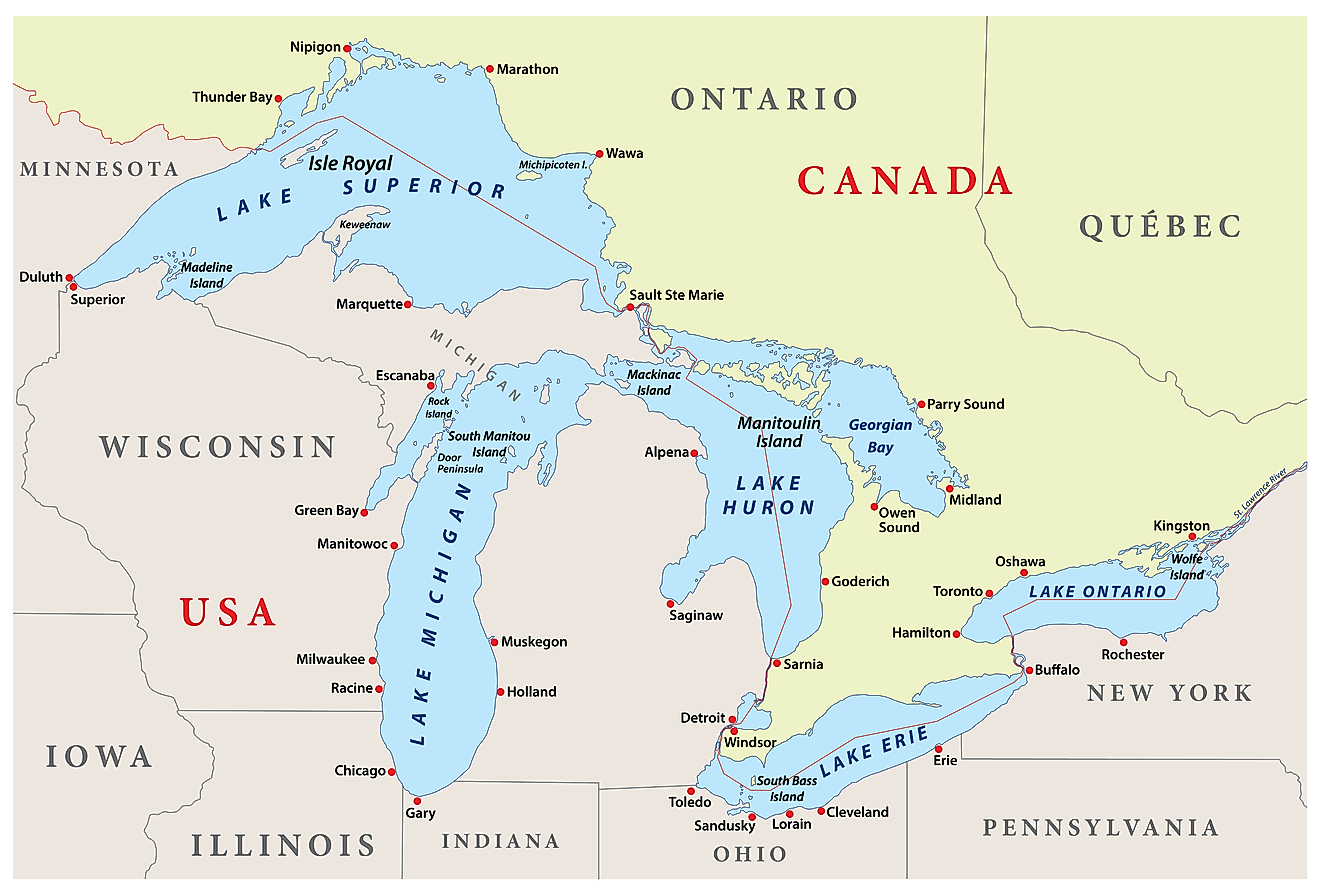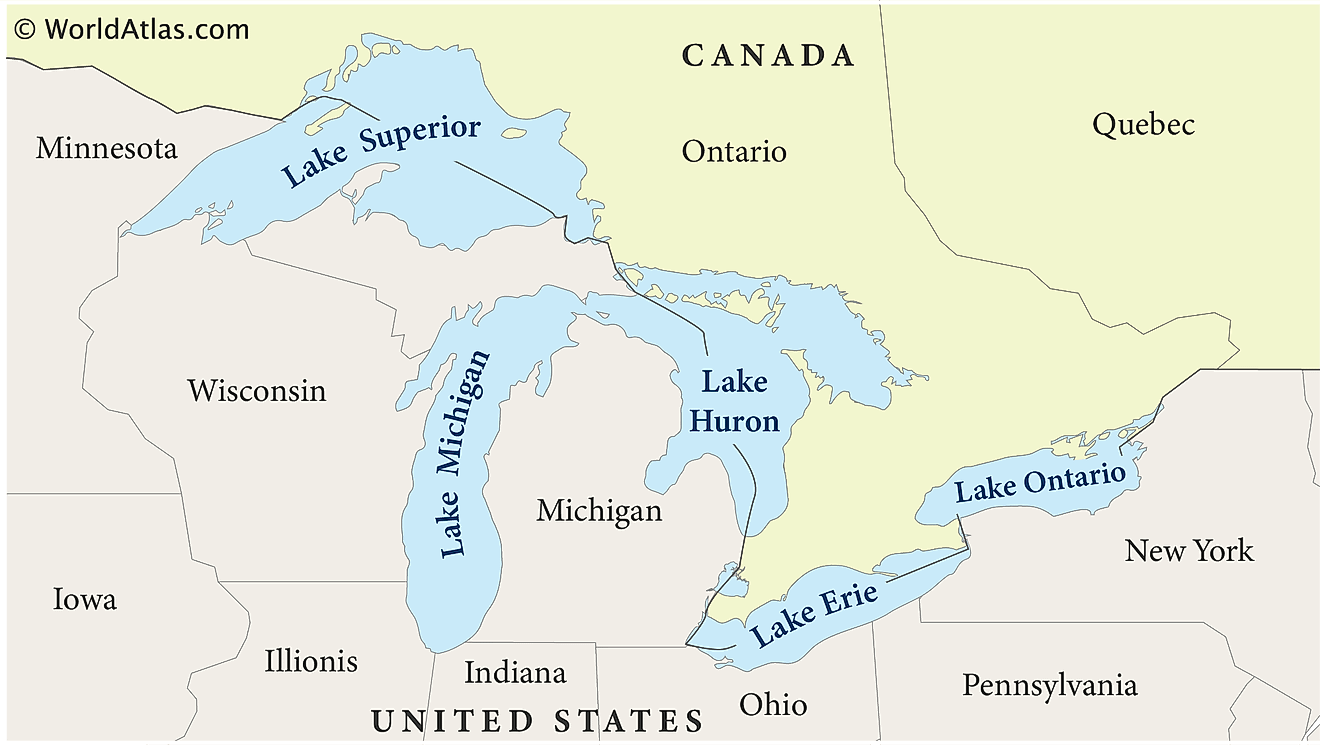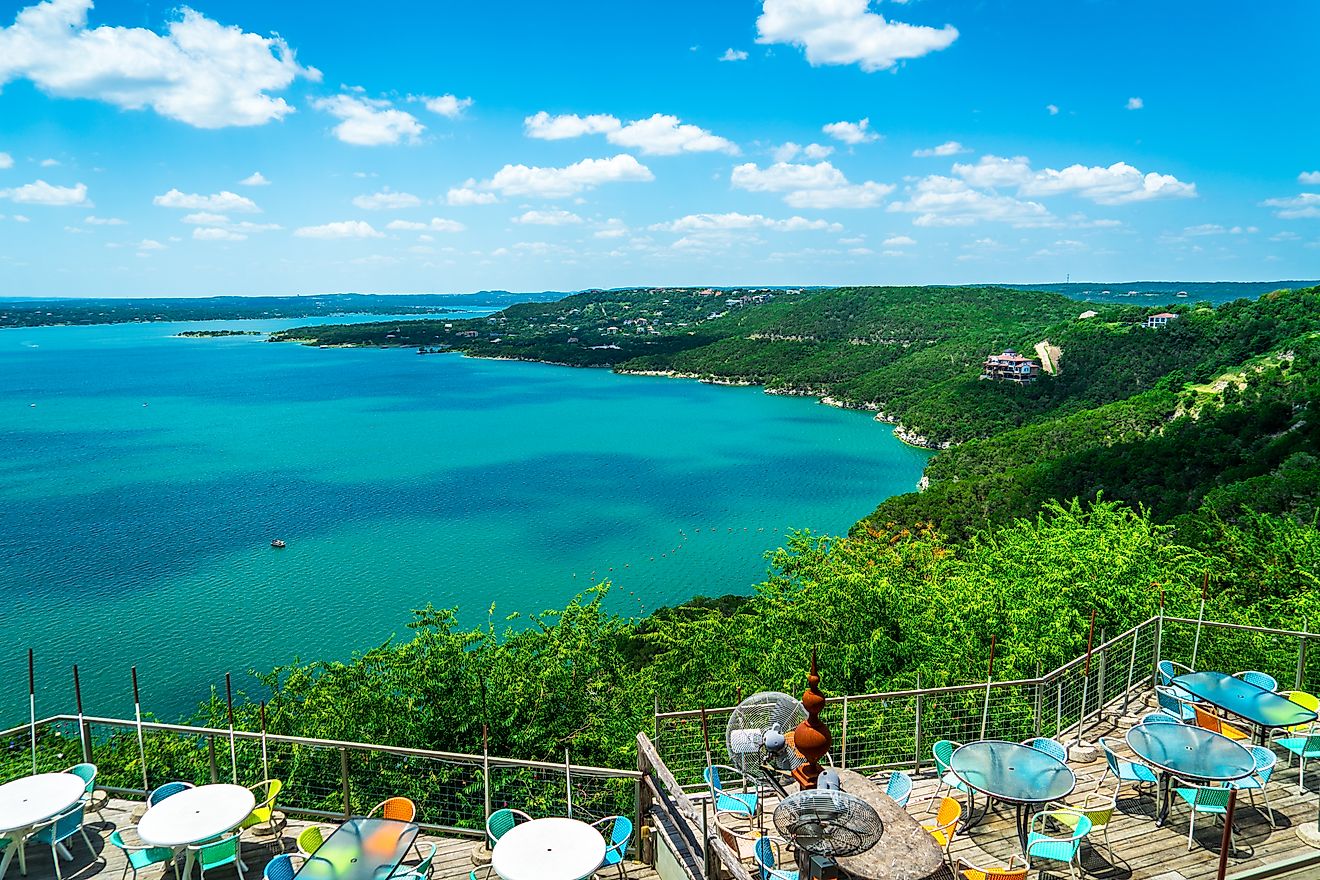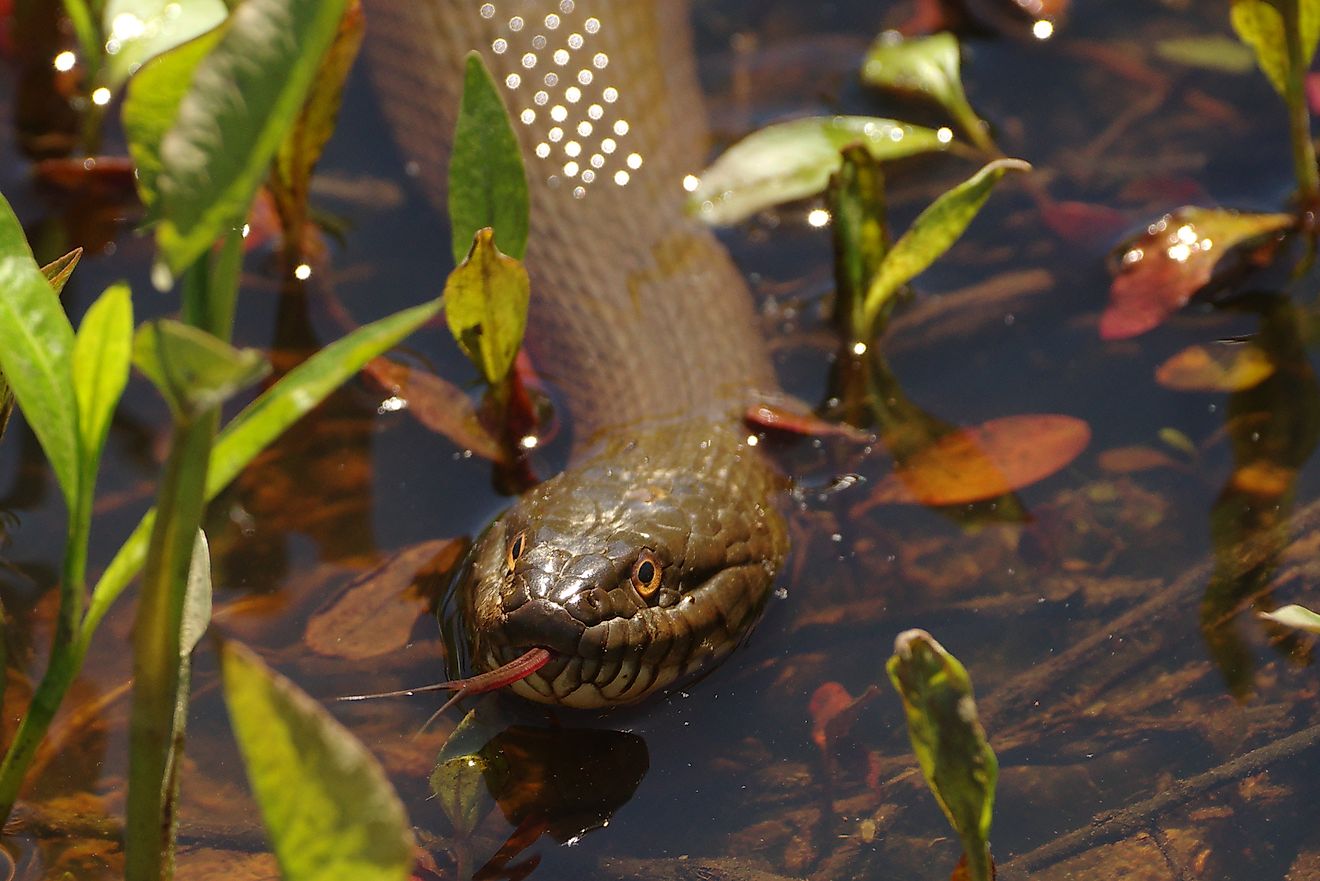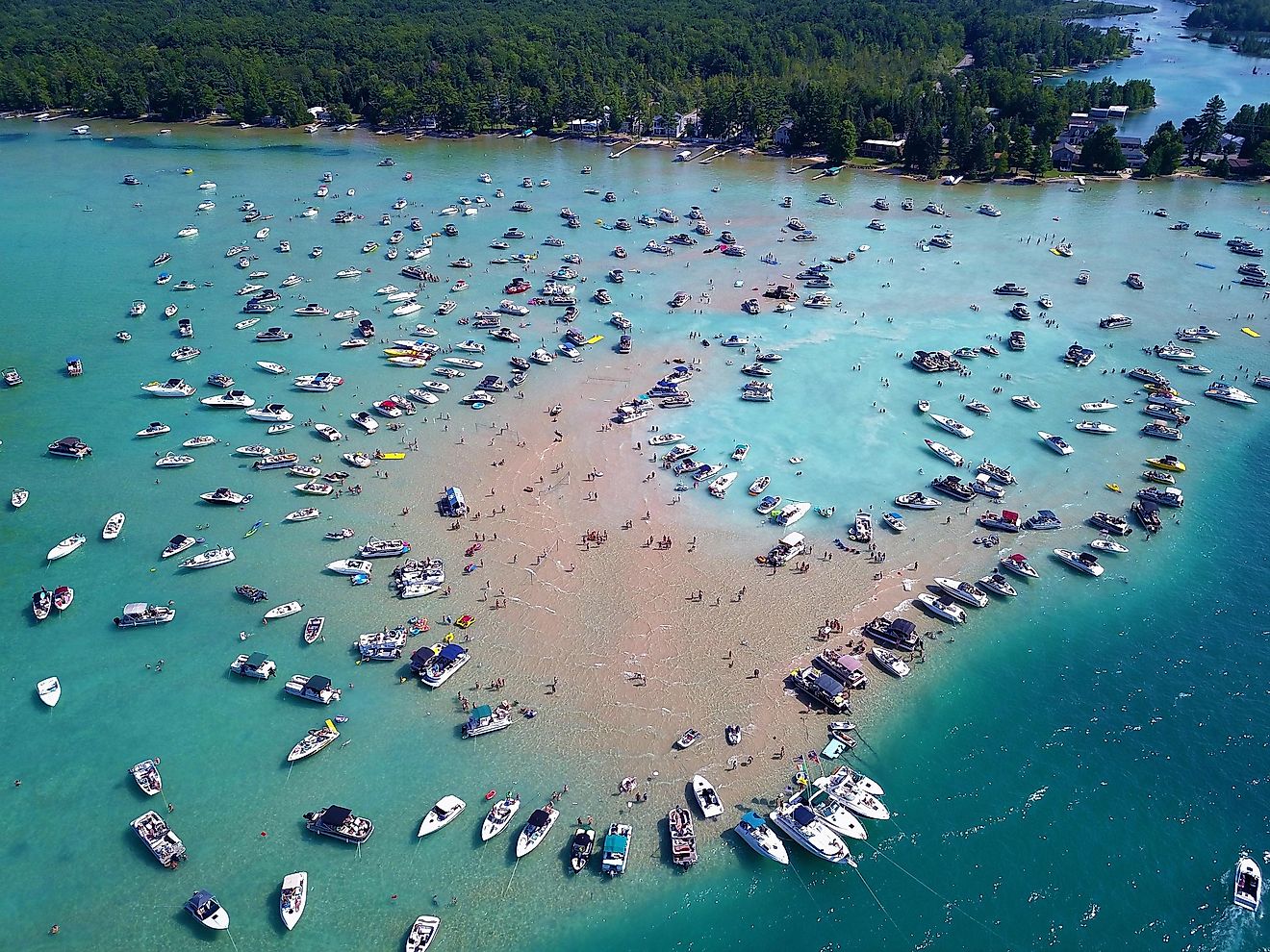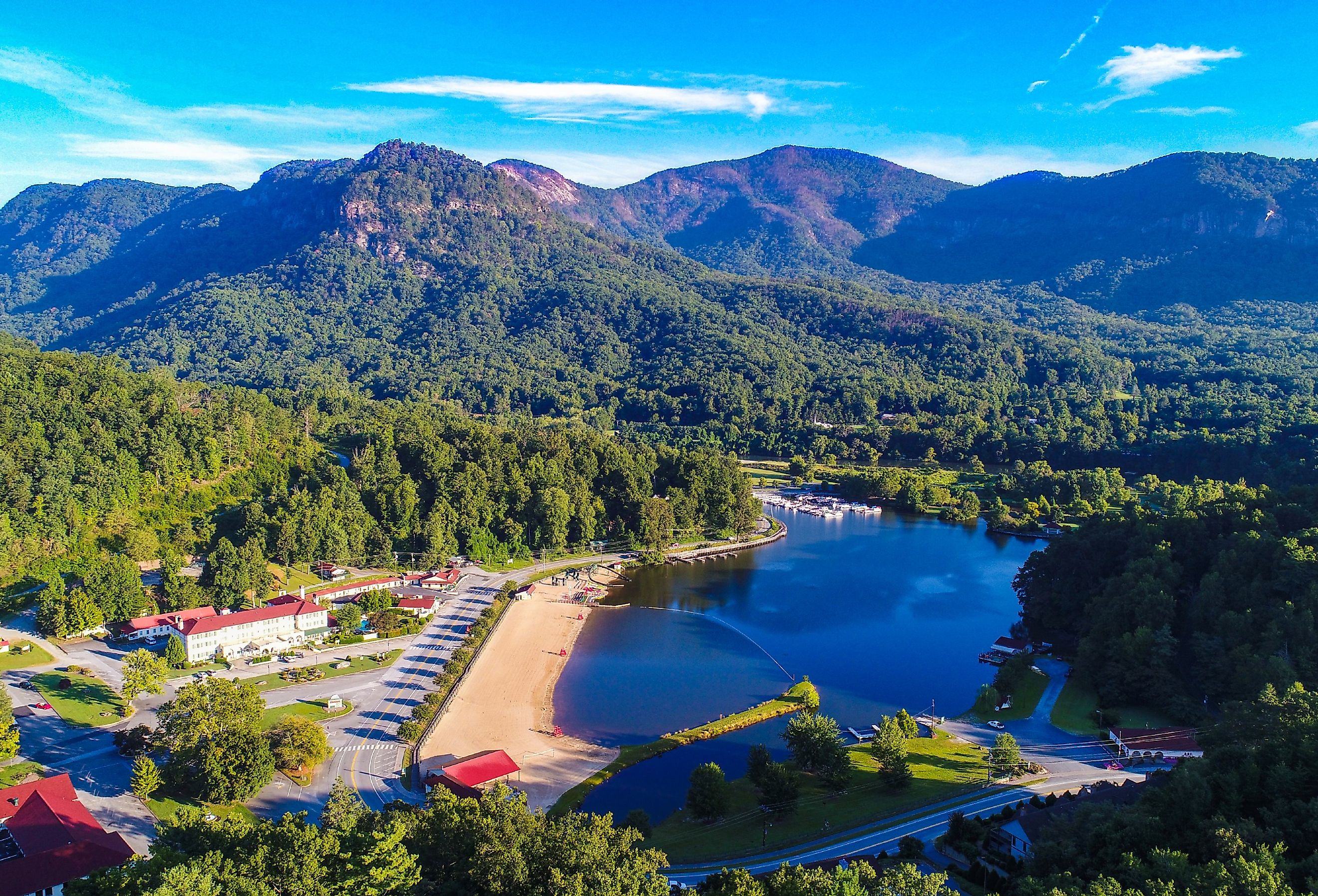
9 Most Beautiful Lakes In North Carolina
North Carolina has a wide range of geological and cultural environments. With the Blue Ridge Mountains to the West and the Islands and beaches on the east coast, the Old North State holds a breadth of opportunities for natural exploration. Aside from beaches and hiking spots alone, North Carolina has almost 60 lakes, 22 of which were naturally formed. From the copious Lake Norman to the West to the more humble Greenfield Lake in the southeast, the state offers an array of ecosystems where visitors can fish, boat, and camp.
Aside from their natural appeal, these beautiful lakes are also surrounded by some of the state's best dining spots and breweries. Known for its craft beer, local and visiting Tar Heels can enjoy a pint from Highland Brewery, Blowing Rock, Edward Teach, and numerous others. Whether looking for a lake with rustic charm or more of a multicultural vibe, North Carolina has every need met.
Lake Lure
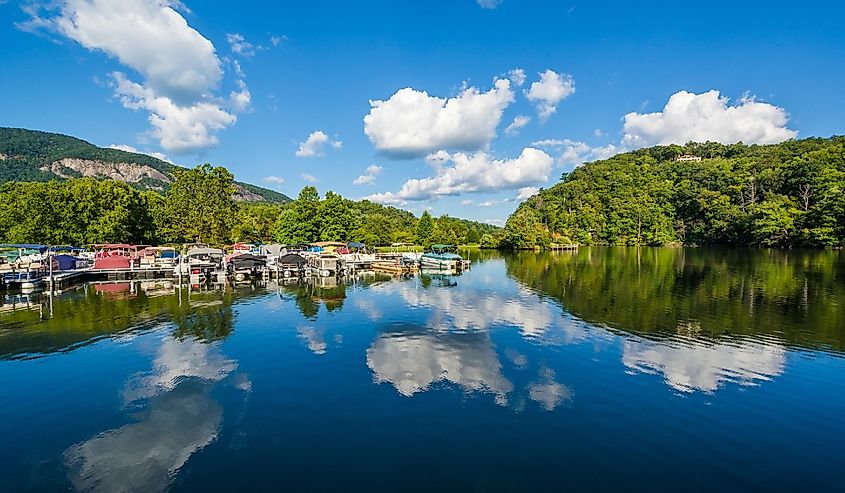
At a clear blue 720 acres, Lake Lure lives up to its name by drawing visitors to the lush forest scape of Western North Carolina. To the east of Asheville, Lake Lure snakes through the Hickory Nut Gorge and transforms from serene to energetic when it descends into rapids through Hickory Nut Gap. During mild springs and summers, visitors can enjoy the fruitful fishing of the lake, with plenty of trout and bass racing through the currents. The foothills also offer private campgrounds, including Creekside Mountain Camping and Hickory Nut Falls Family Camping.
While nature reigns in this area, hotels, eateries, and coffee houses also line Main Street and the Memorial Highway nearby. Each spot meshes with the rustic appeal of Lure Lake, and the shops can help vacationers camp with ease. Aside from boating and camping, the tawny sand of Lure Lake Beach offers a coastal vibe in the mountains, and the golf course is there for the sportsman.
Greenfield Lake
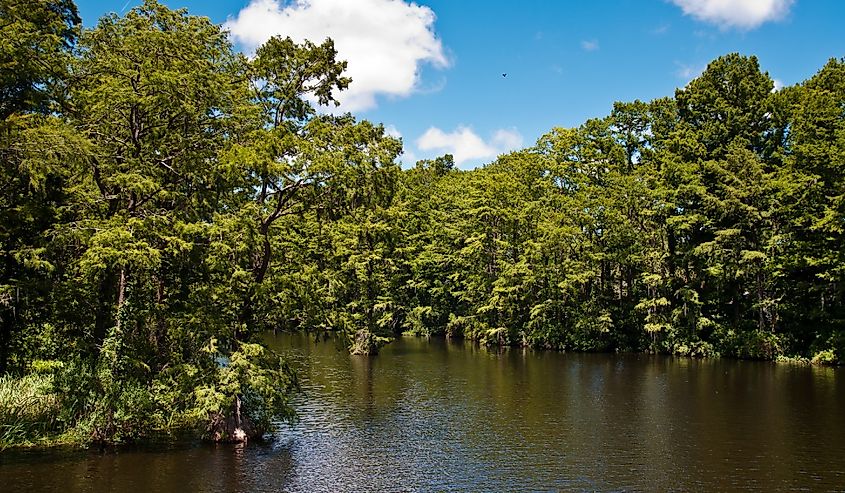
For those who want a taste of nature with all the comforts of the city, the small but serene Greenfield Lake answers the call. Located southeast in Wilmington, North Carolina, the lake is a few miles from downtown and the Cape Fear River and less than fifteen miles from Carolina Beach.
Visitors can rent a canoe or kayak for $10 and drift among moss-draped trees while spotting snake birds diving, great blue herons wading, and the occasional alligator drifting by. Within walking distance of the park is a slew of restaurants for every palette, including The Harp for lovers of fish and chips, Benny's Big Time Pizzeria, Mariposa for Spanish cuisine, and the newly opened Dram Tree Tavern where one can grab classic American food and a pint from one of the local brewing companies. During the spring and summer, you might even hear live music wafting through the trees from the Greenfield Lake Amphitheater.
Lake Waccamaw
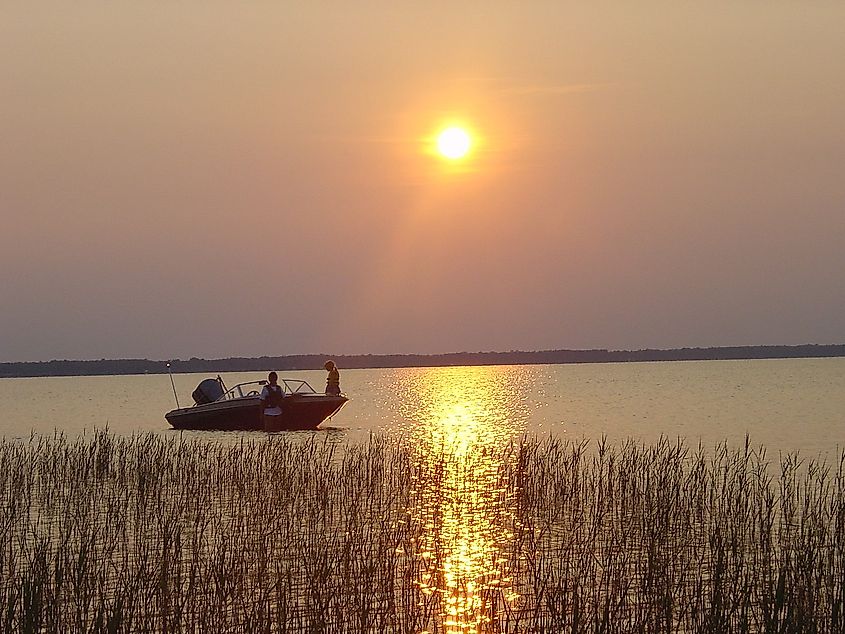
With its rich history, remote locale, and relaxing campgrounds, Lake Waccamaw is an ideal retreat into the natural landscape. Lake Waccamaw is both a town in Columbus County and the largest freshwater lake in North Carolina. It is an unusually rich ecosystem for its locale near the southeast wetland part of the state. Because of its low acidity, it is brimming with unique species, including the Waccamaw silverside and the Fatmucket mussel. These mollusks, fish, and other fauna traverse the 9,000 acres of water and delve under the murky surface to depths that max out at 11 feet.
A depression formed the shallow lake after ocean waters receded thousands of years ago, but that doesn't dampen the local legend of the Waccamaw Siouan tribe that a meteorite created the lake. Regardless of your preferred origin story, Lake Waccamaw enthralls in its remote campgrounds, and promise of adventure to those who paddle or canoe into this world of ancient flora and fauna.
Jordan Lake
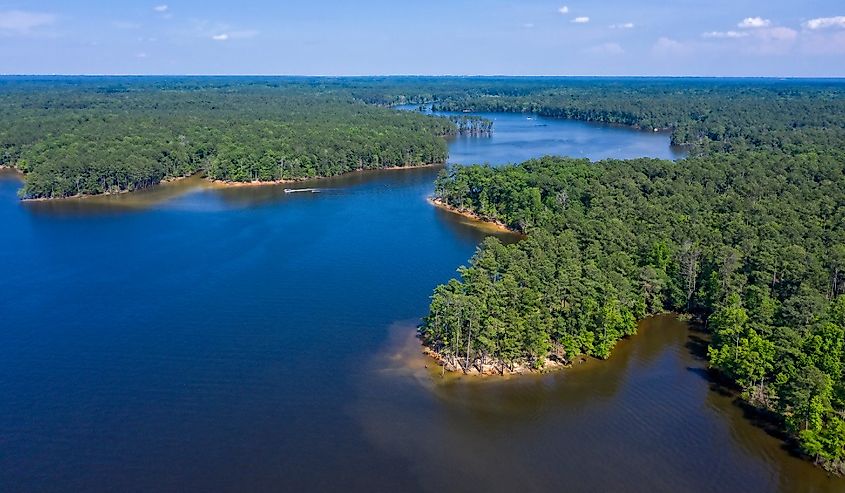
West of Raleigh, by 30 miles, Jordan Lake is a prime spot in Chatham County for fishing, swimming, and camping. Named after businessman B. Everett Jordan, the Army Corps of Engineers created the lake by damming the New Hope River and Haw River in the 1970s and 1980s. Today it serves as a getaway for people in or around the Raleigh Durham area.
Around the 14,000-acre reservoir are over 1,000 sites where visitors can park RVs, campers, and other vehicles and enjoy paddling, picnicking, and hiking as the cobalt currents lap around them. Poplar Point, Vista Point, and Crosswinds campgrounds are best for those who want sandy beaches.
Lake James
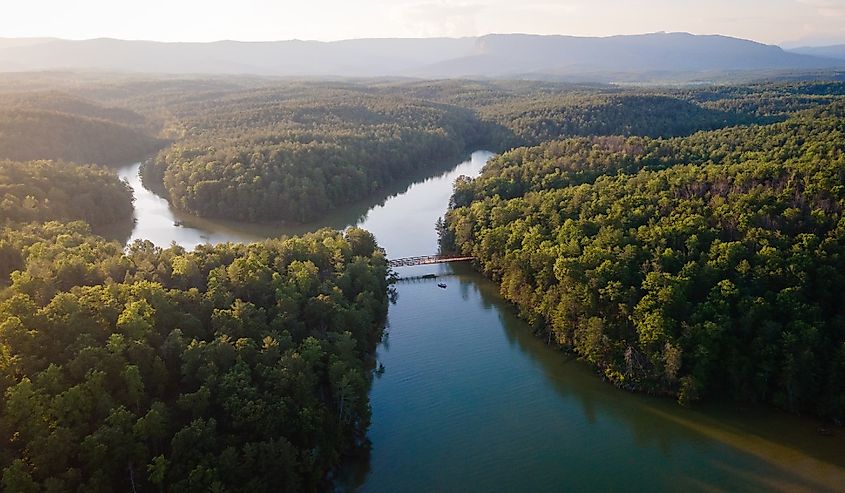
At 50 miles northeast of Asheville, Lake James offers an extensive 150-mile shoreline and a view of the majestic Blue Ridge Mountains. Tucked at the base of Linville Gorge, Lake James boasts lush green pines and hemlocks that proliferate in this part of the state. The typical fauna in the area includes deer, herons, and foxes.
Picnic areas and campgrounds abound at Lake James, but cottage rentals, hotels, and bed and breakfasts are also options. Between May and September, nature lovers can camp on the sands of Paddy's Creek and dip into the cool water. Plenty of other lake activities are also available, from canoeing to fishing, all while looking out on the rolling hills above.
High Rock Lake
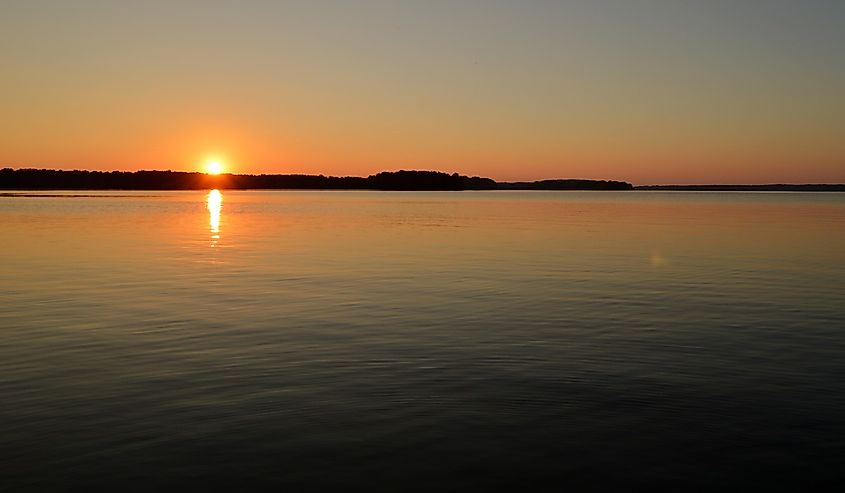
High Rock Lake is the second largest lake in North Carolina at 15,180 acres and 365 miles of shoreline. Located in the Uwharrie Mountains, the Aluminum Company for America created this reservoir in 1929, where the Yadkin and South Yadkin Rivers meet. Today, the lake attracts tourists and North Carolinians alike, who enjoy boating, camping, and fishing.
Surrounding the lake are other attractions, including the Davidson County Historical Museum and The Candy Factory, all less than 12 miles from the water. For people who want to dine and imbibe in a busier area, the small towns of Lexington and Salisbury have plenty of options. Lexington is known for its barbeque, and Salisbury's Haps Grill is famous for its hot dogs.
Lake Mattamuskeet
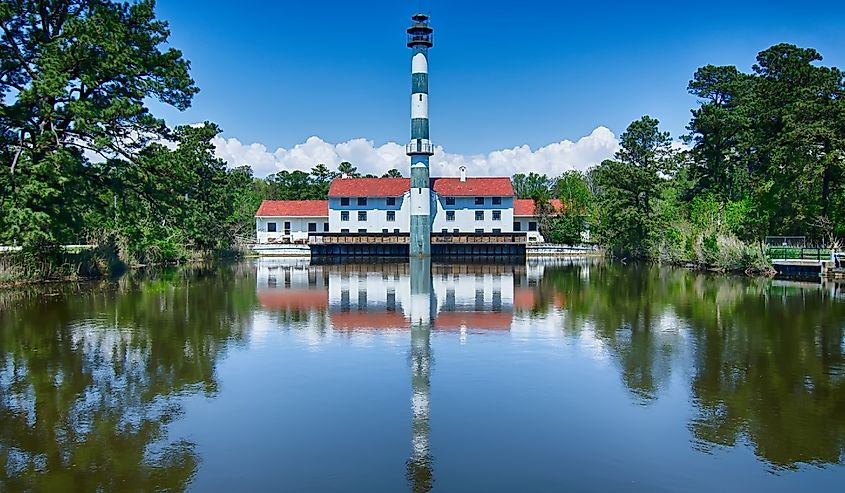
As the largest natural lake in North Carolina, Lake Mattamuskeet is 40,000 acres of shallow water that's home to a diverse range of wildlife. Located on the inner coast of the state, surrounding Mattamuskeet is enough nature to excite true outdoor enthusiasts. Closer to the Outer Banks than any major cities, it is believed by geologists that the sand within the soil around the lake indicates that the sea level resided there 75,000 years ago.
Today it maintains a typical depth of 3 feet, although, with global warming, its depths are slowly rising between 6 to 7 feet. Year-round, visitors can bank fish and crab, but the refuge limits other kinds of fishing between March and October. The visitor center provides exhibits of the local wildlife and information about the additional 10,000 acres of refuge surrounding the lake. Another attraction is the observation tower on the lakeside. Constructed in 1937 to drain the lake, it transformed into a hunting lodge and sits abandoned but preserved. After decades, the landmark stands as a reminder of Mattamusket's tenacious ecosystem.
Fontana Lake
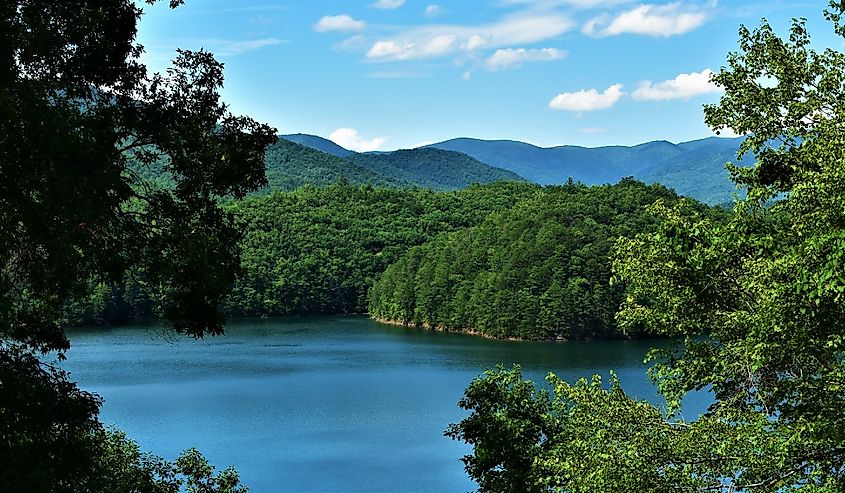
Fontana Lake holds the record as Western North Carolina's largest lake. While others qualify as the state's greatest natural lake, the remarkable 480-foot dam was constructed in the 1940s to generate power during WWII. Builders impounded the Little Tennessee River, creating a vast lake of over 10,000 acres. Its history as a dam certainly does not take away from the beauty of this moss-green lake. With the Great Smoky Mountains looming around the water, boaters can look out at one of the grandest landscapes while sitting above depths of up to 400 feet. The deep waters house a bustling ecosystem of numerous species, including muskellunge, walleye, and plenty of bass and trout.
Visitors can enjoy the richness of the natural landscape, including 42 miles of trails and swimming spots, while also having the comfort of spots like Cardinal Coffee, a former 1900s farmhouse where tourists and locals can enjoy a strong hot cup of coffee. Mountainview Bistro and Lodge and Wildwood Grill are two other recommended spots for sampling great American cuisine.
Lake Norman
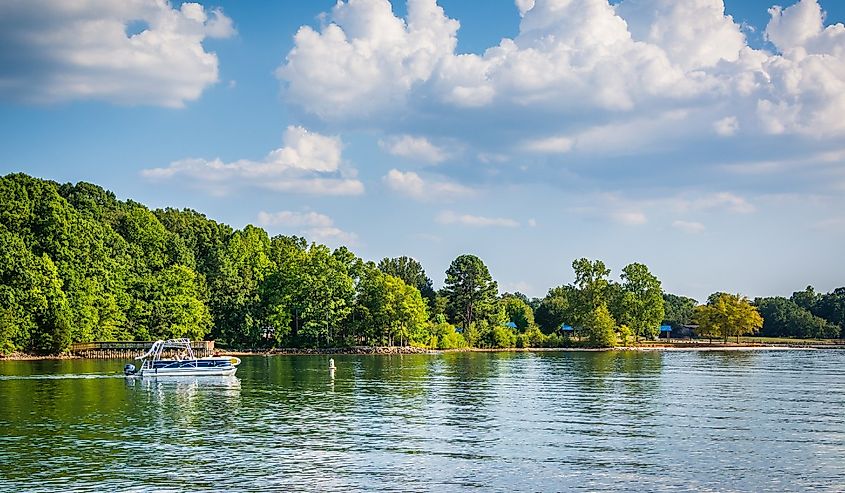
As the largest artificial lake in North Carolina, Lake Norman is a stunning attraction that brings tourists about 40 miles north of Charlotte for a nature-filled respite. The blue lake covers over 30,000 acres and reaches depths of up to 110 feet. The reservoir has been powering the Piedmont region since the 1960s when Duke Energy constructed the Cowans Ford Dam. However, the hickory forests and biodiversity of the area bespeak nature in confluence with human intervention.
With festivals, shops and restaurants, parks, and plenty of boating and hiking activities, Lake Norman allows visitors to reconnect with nature while also enjoying the comforts of home. The Lake Norman State Park offers up to 38 miles of hiking, picnic, camping spots, and beach access. Paddle boarders can visit Long Island Paddle Sports for rentals, and fishermen can throw their lines from Patriot Pier at Ramsey Creek Park.
As a coastal state, one might think first of the stunning beaches of Wrightsville and Carolina Beach. Still, nothing beats the awesome power of seeing the red sun on the horizon, casting a cobalt hue onto waters surrounded by hardwood and pines. North Carolina holds some of the most charming lake adventures, with choirs of birds, frogs, and insects dominating the surroundings, and waterfowl strutting on the banks. With the stimulation of a teeming ecosystem, the hustle and bustle of the city might be less enticing beside the lakes and reservoirs of the Old North State.

